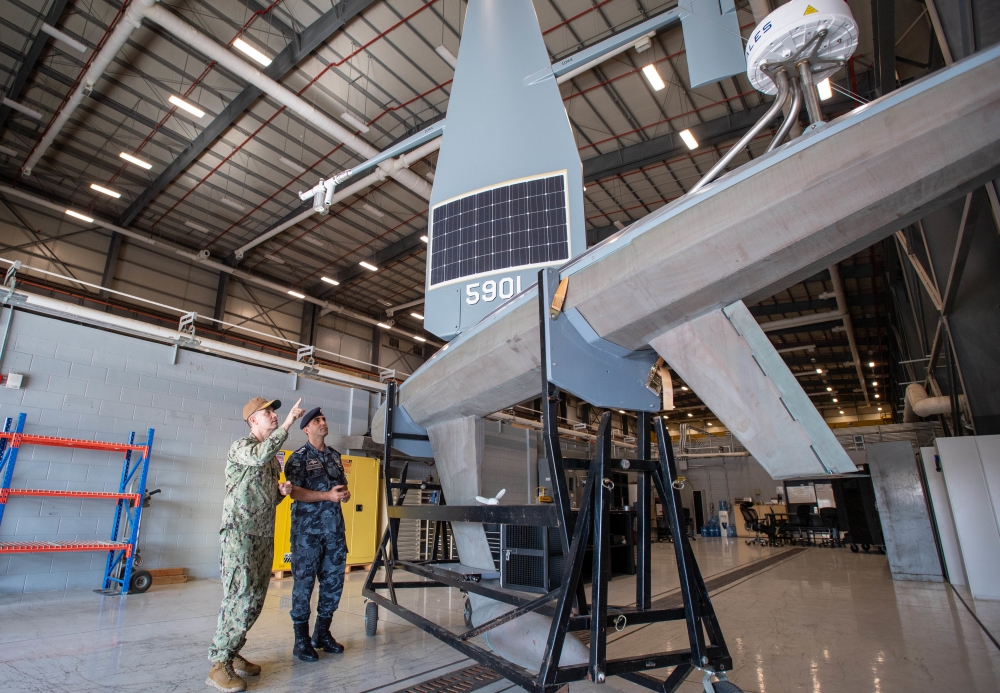U.S. Naval Forces Central Command (NAVCENT) briefed the head of Jordan’s navy on U.S. 5th Fleet efforts to integrate new unmanned systems during a visit to U.S. Naval Support Activity Bahrain, Nov. 18.
Personnel from NAVCENT’s Task Force 59 briefed Col. Hisham Khaleel Aljarrah, commander of the Royal Jordanian Naval Force, alongside Vice Adm. Brad Cooper, commander of NAVCENT, U.S. 5th Fleet and Combined Maritime Forces on the task force’s new Saildrone Explorer unmanned surface vessel (USV).
The visit signaled U.S. 5th Fleet’s commitment to partnering with Jordan after establishing the new unmanned task force in September to focus U.S. 5th Fleet efforts on unmanned systems and artificial intelligence integration.
The Royal Jordanian naval base in Aqaba, Jordan will become a joint hub for Saildrone USV operations in the Red Sea next month. The United States and Jordan share a strong bilateral partnership in maintaining regional maritime security and stability.
“This is a major step in our effort to integrate new unmanned systems with our regional partners,” said Cooper. “Our strong partnership with Jordan will help accelerate new system development and integration to enhance maritime domain awareness and strengthen deterrence.”
The Saildrone Explorer is a 23-foot-long, 16-foot-tall USV reliant on wind power for propulsion. The vessel houses a package of sensors powered through solar energy for monitoring the maritime environment.
“We are working harder and smarter to achieve maritime security, in all domains – surface, subsurface, and over the sea,” said Hisham. “The Red Sea will witness a significant increase in monitoring and power projection to maintain stability and security within international waters”
The Middle East region’s unique geography, climate, and strategic importance offer an ideal environment for unmanned innovation through multilateral collaboration. The area includes the world’s largest standing maritime partnership, Arabian Gulf, Red Sea, Gulf of Oman and parts of the Indian Ocean.
Source: US Navy Press Release

